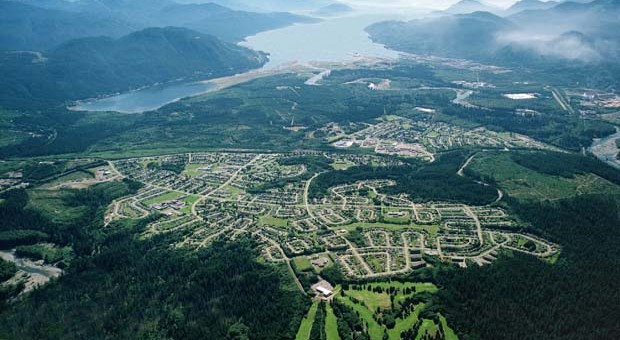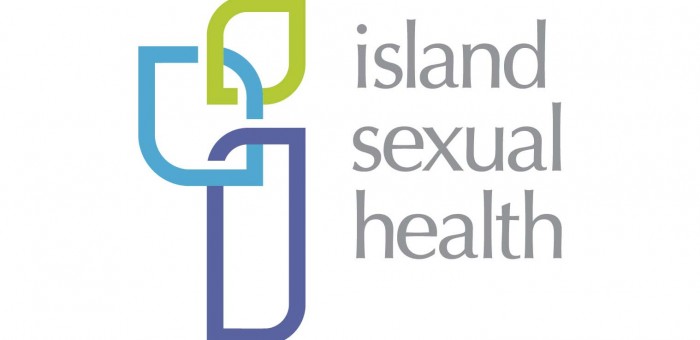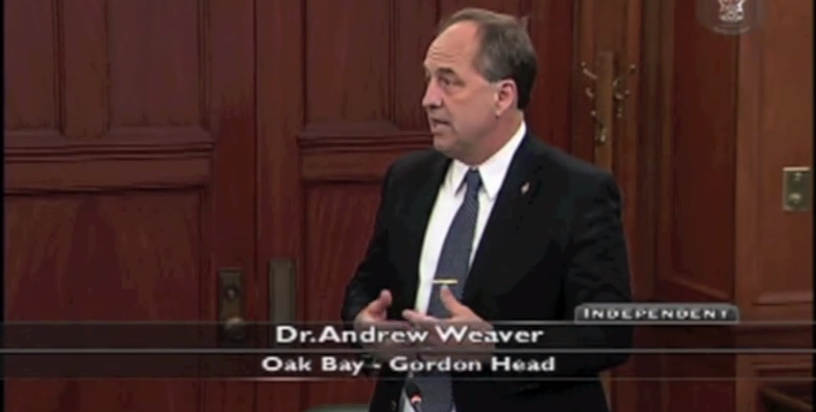Community Blog
Jumbo Glacier Resort: Undermined By Science
With a recent Supreme Court decision in place, the year-round ski resort on Jumbo Glacier is one step closer to development. If built, the resort will be the first of its kind in North America. It will also likely be the last of its kind, ever, because at a fundamental level, it simply does not make sense.
If fully completed, the 20-year, billion-dollar development is expected to be the only resort in North America where patrons will be able to ski year-round. The project has been hotly contested since its inception 23 years ago. Throughout this period, it has faced significant local opposition from special interest groups, local communities, and First Nations. Most recently the Ktunaxa First Nations brought the resort before the BC Supreme Court, arguing that its development violated a sacred area for the Ktunaxa Nation. The court has now ruled in favour of the developer, removing one more barrier to the resort’s construction.
But does this development make sense?
Development happens, change happens, and there will always be proponents and opponents of specific projects. Yet, in the case of the Jumbo Glacier Resort, there are a few facts that appear to undermine the viability of the project.
First, the science is clear: The whole concept of a long-term, all-season ski resort is slowly but surely becoming a fantasy. Glaciers across BC are melting and Jumbo Glacier is no exception. It is expected that by 2100, Jumbo Glacier will be largely non-existent. In fact, just looking at the period between 1985 and 2005, the entire Southeastern BC glacial region lost, on average, roughly 15% of its mass. Yet while the science is forecasting increased melting, according to the developer’s own plan it will still take over 20 years to build the proposed resort. This means that by the time the resort is fully operational a further 20 years of melting will have also occurred. The fact is, climate change is eliminating the viability of year-round glacial skiing and as it does so, it is turning Jumbo Resort into an increasingly risky investment.
Second, the Jumbo Resort clearly lacks a social license to continue. Over the last decade, media, governing bodies and special interest groups have conducted several polls and surveys that serve to highlight the significant local opposition to this project. For example, in the 2004 Environmental Assessment over 90% of the thousands of comments received were in opposition to the project. There has been significant local opposition to the idea of the resort from its inception and there continues to be strong opposition from the Ktunaxa First Nation.
Finally, the fact that the provincial government has used $250,000 to create a municipality that has no residents and no infrastructure is troublesome, given the real needs that exist in our province. How this is a good use of taxpayer money or a sound investment decision are both good questions.
Until this week, Jumbo Resort had a deadline to begin construction by this fall, or it would have to undergo a new environmental assessment. Unfortunately, the provincial cabinet passed an order in council this week that may exempt Jumbo Resort from undergoing this assessment. This change is particularly troublesome given the advancements in climate science and in our knowledge of glacier melting, both of which have evolved significantly since Jumbo underwent its last environmental assessment in 2004.
The fact is, the more we learn about glacier science, the less a resort like Jumbo makes sense. Given this, it’s hard to understand why the provincial government is subsidizing and promoting the development of a project that faces significant local opposition and flies in the face of our best scientific understanding of climatic trends.
Twenty years ago we may have thought this project had a promising future. Now we know that future is bleak.
Victoria Mariners Season Home Opener
Victoria Mariners had their season opener today at Henderson Park. They are off to a great season winning the double header today against the Nanaimo Pirates (7-4 and then an 11-1 5th inning mercy). They are now 4-0 having won their two games yesterday by default against the North Shore Twins.
Victoria Mariners are closely linked to the Lambrick Park School Baseball Academy.
It was an honour to be able to throw the opening pitch today, even if I have a lot to work on with my throwing form.
Photo Credit: Christian J. Stewart / Island Sports News
Kitimat Vote a Clear Message Against Northern Gateway
Media Statement April 13th 2014
Kitimat Vote a Clear Message Against Northern Gateway
For Immediate Release
Victoria BC – Andrew Weaver welcomes the vote by the residents of Kitimat B.C.to reject the proposed Enbridge Northern Gateway pipeline project. We also congratulate the Mayor and Council of Kitimat for pursuing a democratic process allowing the people directly affected by the terminal to voice their opinion. The 58% against the project is a clear message, and we urge governments at all levels to respect the people of Kitimat, and the majority of people in British Columbia, who oppose this pipeline, and the increased tanker traffic.
“No means No, not a pathway to yes. I wish to congratulate the Mayor and Council of Kitimat for allowing the plebiscite, and the residents for clearly demonstrating their opposition to Northern Gateway. I also urge all levels of government, especially the Federal Cabinet, to respect the decision.” said Andrew Weaver – MLA, Oak Bay – Gordon Head
Coastal First Nations, and those along the pipeline route, are unanimous in their opposition to Northern Gateway. The B.C. government is opposed to the pipeline and terminal saying Enbridge has failed to address fundamental questions in their submission to the National Energy Board hearings. Provincial wide polls have consistently shown the majority of people in B.C. are against the project, and now the people of Kitimat have expressed their opposition.
“This is another nail in the coffin for Northern Gateway. The people of Kitimat should be congratulated by everyone throughout the province for their determined stance. They weighed the environmental risks to the small economic benefits and made the right choice” said Adam Olsen, interim leader of the B.C. Green Party
Media Contact:
Mat Wright – Press Secretary, Andrew Weaver MLA
(1) 250 216 3382
mat.wright@leg.bc.ca
Good News for Island Sexual Health Society
Today during Question Period I asked the Minister of Health about whether or not he was willing to help with the imminent funding crisis faced by the Island Sexual Health Society. I was pleased that the Minister has agreed to work with Island Health and the Island Sexual Health Society to seek ways of alleviating their funding predicament.
Below is my question followed by the minister’s response.
A. Weaver: Island Sexual Health Society provides essential primary and public services to the lower Island, with over 26,000 patient visits each year. It fills a significant gap around basic health care needs in a cost-effective manner.
My riding has both Camosun College and the University of Victoria, with thousands and thousands of students who do not have GPs or access to GPs, who require these services.
The Island Sexual Health Society is systemically underfunded by our public health system, needing more than a third of their budget — in fact, 36.4 percent, if you wish to know, of their operational budget — from non-governmental sources. As a consequence, they are struggling to stay open. In fact, you might say they are victims of their own success.
My question is to the Health Minister: will the minister make a commitment to support Island Sexual Health in continuing to provide these essential services?
Hon. T. Lake: Thank you to the member for Oak Bay–Gordon Head for the question.
Island Sexual Health is a non-profit organization that does provide excellent service to people in the Victoria area. They have a mixed funding model. They provide services on a fee-for-service basis. That continues so that health services are available through that model. They also provide some public health services through funding from Island Health, funding that has continued to increase over time.
I understand that Island Sexual Health moved into larger facilities and that the higher costs associated with those larger facilities have outpaced their revenue in terms of the MSP fee-for-service model. I know that Vancouver Island Health Authority is working with Island Sexual Health, and we will be involved in those discussions to look at ways of supporting this organization to maintain the valuable services that they do provide but also to maintain and stay within the budget that they have for those services.
In order to explore the matter further I followed up with a supplementary question. The Minister reaffirmed his commitment to work with Island Sexual Health Society to find solutions to their funding problems.
A. Weaver: Thank you to the minister for the very thoughtful response to that question.
I would like to add that just this week the board of Island Sexual Health met and agreed to cut their budget for this next fiscal year by $140,000, and they also made some structural changes by going to a walk-in model to increase client numbers and decrease administrative costs, but, as the minister noted, they still need long-term commitment of $235,000 per year to offset tenancy costs. This is the barrier to their continued success.
Again to the minister: would the minister be able to agree, again, to work with Island Sexual Health in order to solve the crisis, the short-term crisis that they face, in terms of meeting their monthly tenancy costs?
Frankly, the services they offer to southern Vancouver Island are simply too important for them not to remain solvent.
Hon. T. Lake: Again, I want to acknowledge the very good work that Island Sexual Health provides to residents in the Victoria area, particularly the university population. The member from Oak Bay and I share family members who attend the university and know that these services are very valuable.
However, whether it’s a non-profit organization or a private corporation providing publicly funded health care, it is important that they pay attention to the funding model and the revenue that comes in and the expenditures. In this situation, this organization decided to move into space that perhaps outpaced their ability to match with revenue. But we will work with them. We will work with Vancouver Island Health Authority to look and see if there are ways of supporting the organization while making sure they stay within their budget.
Minister says “No Plan to Intervene” in Esquimalt Sewage Plant Re-Zoning
Media Statement: April 9th, 2014
Minister says “No Plan to Intervene” in Esquimalt Sewage Plant Re-Zoning
For Immediate Release
Victoria BC – In the House Tuesday Andrew Weaver asked the Minister of Environment, The Honourable Mary Polak, if the government had any intention of intervening over Esquimalt council’s unanimous rejection of the Capital Regional District plans for a sewage treatment plant at McLoughlin Point.
The reply from the Minister was – “We have no plans to intervene”
“The Minister has been consistent with her message regarding the CRD since I first raised this question in the House last year. She has no plans to intervene, and the program funding is available through to the completion deadline of 2020. “ said Andrew Weaver
Draft Transcript from Hansard, Tuesday April 8th, Afternoon Session, Committee A.
A Weaver: As the minister is aware, Esquimalt Council voted unanimously last night to reject the capital regional district rezoning request for McLoughlin Point for the sewage plant there. This comes, following considerable public engagement — four evenings of public consultation where only one person spoke in favour of the project, and many, many, many others spoke against it. The public consultation demonstrated there’s little, if any, support for the current plan.
My question is this: considering the CRD currently has no alternative site for the treatment plant and, in fact, Esquimalt have tasked staff with putting together information to rezone McLoughlin Point to not allow a sewage plant there, will the minister reassure residents of the region that the province will not intervene on the zoning unless the CRD proves all other options are exhausted?
Hon. M. Polak: I can assure the member that our position remains the same today as it has in the past. The federal government requires that they treat their sewage by 2020. This is an obligation that falls on the local governments. It’s unfortunate that they’ve reached this kind of an impasse.
I understand that CRD is meeting this week, perhaps even tomorrow, to discuss the implications. I’m not going to speculate on what might result from that, but we have no plans to intervene. We’ve said from the beginning that this is an issue that the local governments need to grapple with, understanding that they’re the ones who are obligated to begin treatment of their sewage. We have no plans to intervene
Media Contact
Mat Wright – Press Secretary, Andrew Weaver MLA
mat.wright@leg.bc.ca
1 250 216 3382









